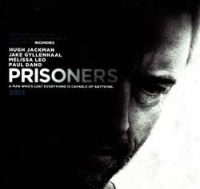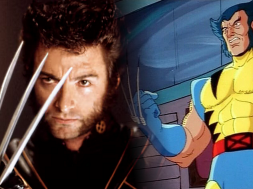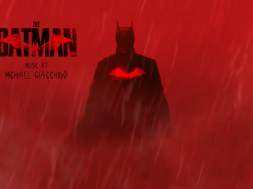
There aren’t many fresh ideas to be found in the thriller and mystery genres. In fact their approach borders on being so stereotypical that audiences are probably able to guess who did what to who just by looking at the poster. Even the twistiest of plots is rendered predictable purely because viewers are expecting the twist.
Prisoners doesn’t do anything major to change how the plot goes, but, in a bold move by writer Aaron Guzikowski, it takes the familiar tropes of a kidnap thriller-cum-whodunit and changes how its played. The opening act sets up like you would expect; two little girls are kidnapped under their parents’ noses, a driven cop is put on the case, and a suitably creepy suspect is arrested and grilled on their whereabouts. So far, so every thriller ever made.
But once alleged abductor Alex Jones – Paul Dano in an unsettling yet pitiable turn – gets released due to lack of evidence, the film turns the investigation and cat-and-mouse into a subplot, preferring to focus on the fracturing of the victims’ families and the dark, violent roads it leads them down. This determination to play an emotional game first and an intellectual game second, drawing tension from heartbreak rather than red herrings and mysterious goings on (though there’s plenty of the latter too), makes things feel fresh from the off.
Familiar plot points and scenes pop up throughout – an interview with a shady priest is particularly obvious – but so much energy is spent immersing the audience in the painful journey of the families that there seems little time for the endless questioning and exposition that’s marred many a thriller over the years, and its absence is more than welcome. Director Denis Villeneuve adds to the mix by loading scenes with religious imagery, minimising the music, and making every shot feel as though its soaked in rain and snow even when it isn’t raining or snowing.
The danger with concentrating on all this high emotion is that the tendency to overact is never far away, but the cast, like the rest of the movie, play in an admirably low-key fashion. As vengeful father Keller Dover, Hugh Jackman is on particularly intense form, drawing viewers into his fractured world and making his actions understandable if not entirely condonable, while Terence Howard plays the best friend with easy charm early on, which carries a middle section where he seems required only to well up and wobble his bottom lip. Maria Bello doesn’t get much to do in her role as distraught mother, either, but her eyes are suitably haunted and her screams suitably gut-wrenching.
Jake Gyllenhaal’s tattooed, twitchy and driven Detective Loki is the pick of the performances however, and is easily Gyllenhaal’s best since Donnie Darko. Again it’s in large part thanks to the scripts avoidance of on-the-nose explanations of who everyone is and what they mean to each other. Loki comes across as contained in his interactions with his irate captain (Wayne Duvall) and with Dover, in particular during a stressful scene involving identifying bloody clothes, but the emotional cauldron is visible below the surface with every rapid flutter of his endlessly blinking eyelids. It’s both a typical thriller ‘tec performance and a subversion of it, another point in favour of the character-before-plot tactics of the movie.
Once the time comes to wrap up the threads of the story, though things start to become a bit contrived; the minimal explanation of the kidnappers motives prompts something of an “is that it?” reaction, while the denouement relies on more than one coincidence, leading to an ending that aims for beguiling but ends up being a bit of a let-down.
But, as the rest of the movie shows and doesn’t tell, Prisoners is not about the villain and the victims; it’s about the collateral damage and the people who get caught in the ripples of evil. The ending is anticlimactic because by the time it rolls around, you care enough about the characters to want something better for them. The focus-switching gambit of writer and director, the strong cast performance, and the trust shown in the audience to understand the hows and whys without their hands being held pays off, and the final result is a gripping, engaging, movie that puts a fresh angle on a well-worn genre.
[easyreview cat1title=”The Arcade Verdict” cat1detail=”” cat1rating=”7″]












